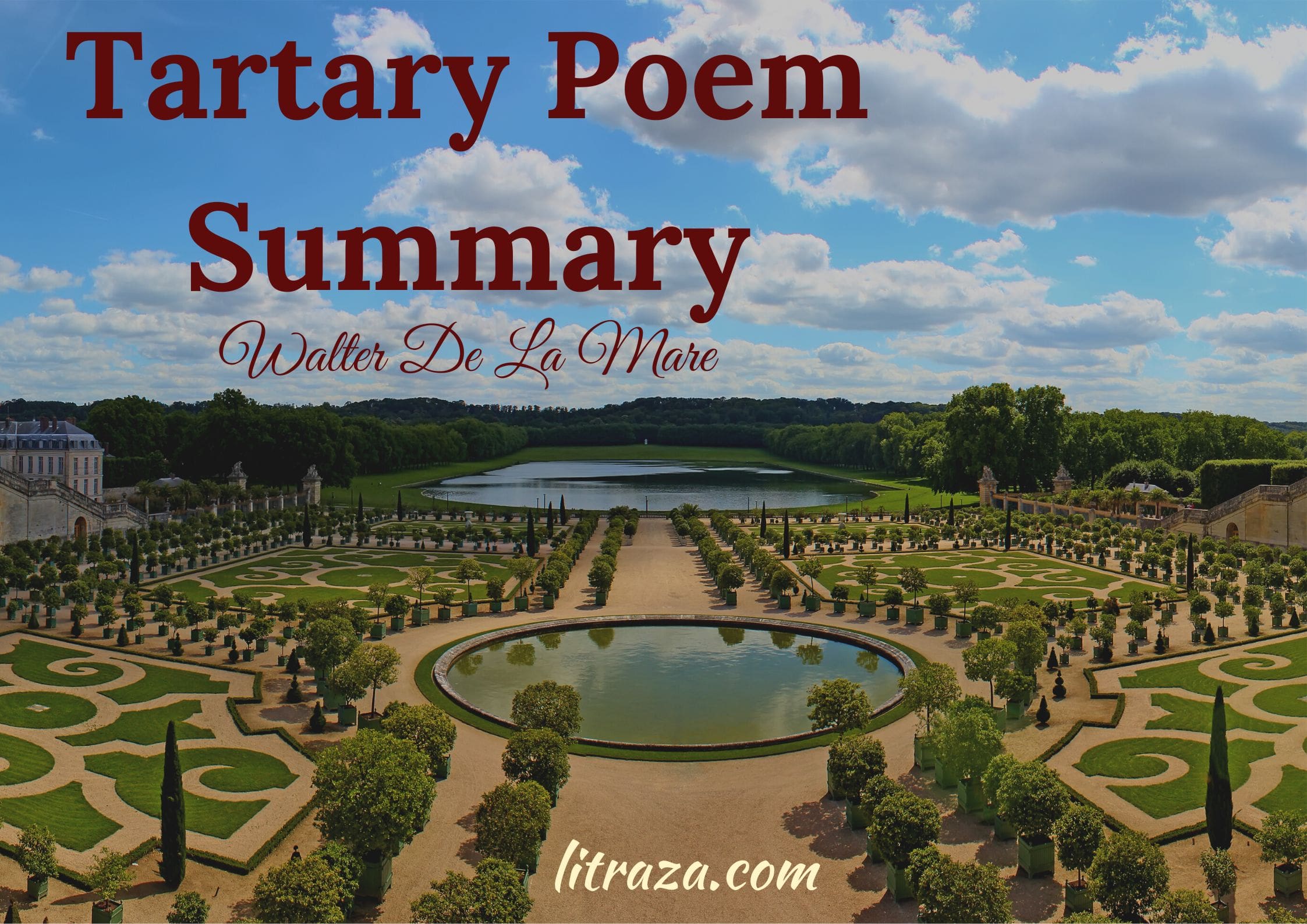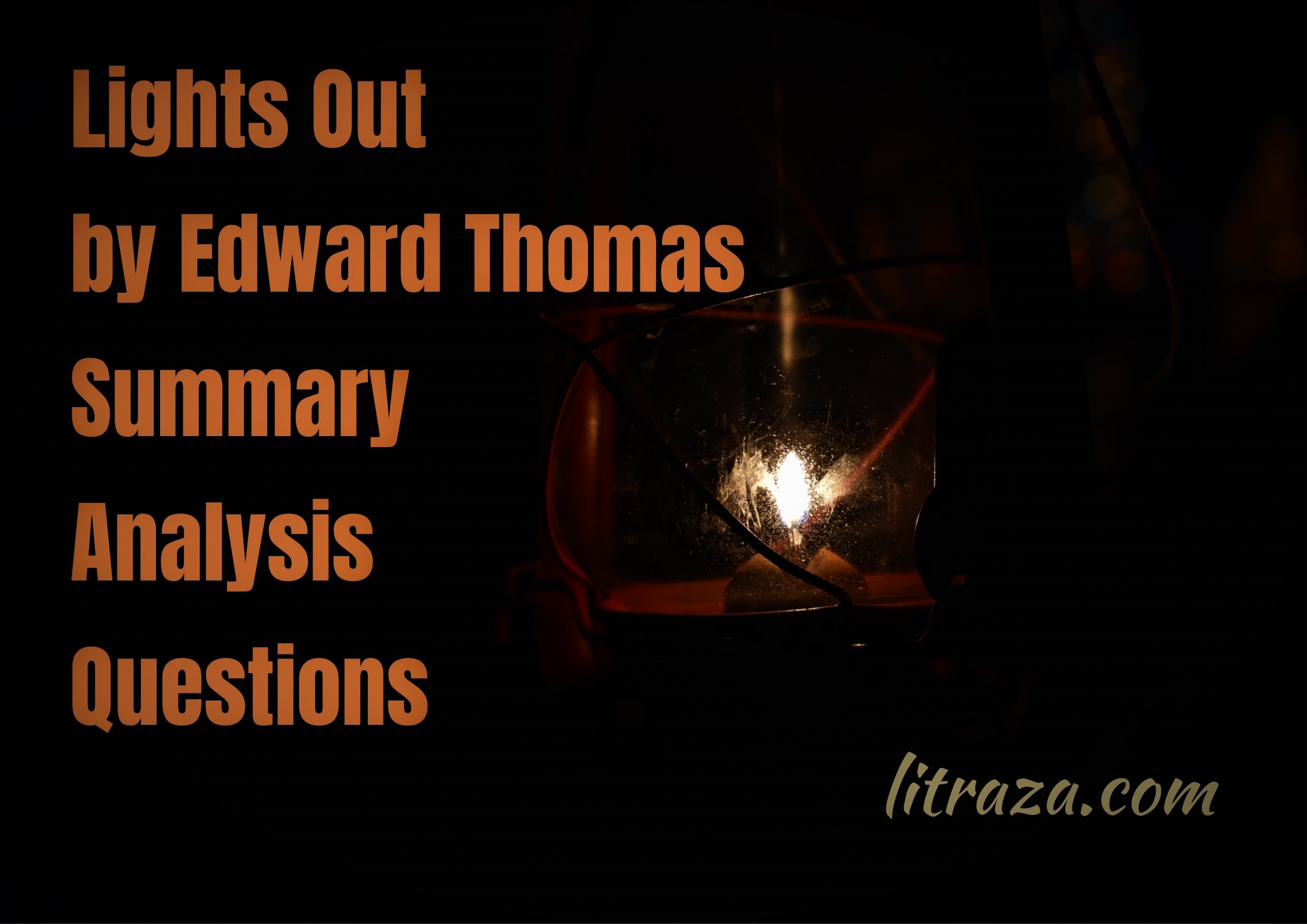A summary of a piece of writing helps us memorize the main line of action or scheme of ideas as the author presents them. Tartary is one of the most celebrated poems in English literature. It is an example of imaginative poetry. Tartary poem summary is one of the most searched items on the web. Tartary poem by Walter de la Mare is a part of the syllabi of BA/ ADA of different universities in Punjab, Pakistan. Therefore, many students from various universities look for helping material to prepare for their examinations. This article, Tartary poem summary by Walter de la Mare, is going to be of great help to these students. It will also assist teachers in streamlining their thoughts. It will enable the readers to write appropriate Tartary poem analysis. The students will be able to write suitable answers to the questions regarding this poem.
The Poet

Born on April 25, 1873, in Charlton, Kent, England, Walter de la Mare was a prolific English writers. He exhibited his imaginative and creative abilities in poetry, novels, and short stories. His literary works show the influences of greats like William Blake and Samuel Taylor Coleridge. His collection of poems entitled Songs of Childhood reminds us of Blake’s Song of Innocence. The poem, Tartary, has similarities with Coleridge’s Kubla Khan in terms of Romantic imagery and thematic structure. He received many honours including the Order of Merit in 1953. Walter de la Mare died on June 22, 1956.
Text of the Poem Tartary by Walter De La mare

Summary of the Poem Tartary by Walter De La Mare
This poem, Tartary by Walter De La Mare, is a fine example of a free flight of imagination. The poet, in this poem, seems to have grown fed up with the rush of modern life. He wants to live a pleasant, placid life. It is not possible in the modern world. Therefore, the poet escapes to the world of imagination. He expresses his desire to be the sole ruler of an imaginary land, Tartary. He, perhaps, believes that it is the only way to live life the way he wants to. The poem is full of sensuous imagery. It gives this poem a romantic tinge.
The poet, as a ruler of Tartary, desires to sit on a throne of beaten gold. He aspires to sleep in a bed of ivory. The poet desires peacocks to adorn his court and colourful fishes to increase the beauty of his pools. He wants his dress decorated with shining beads of different colours. Seven zebras would pull his carriage. He would go hunting through the dark jungles of Tartary.
The trumpeters would summon him for meals in a ceremonial way. His countless servants would always be at his beck and call. Yellow and red lamps would illuminate his court. In the evenings, the music played on the harp, lute, and mandolin would make the atmosphere romantic. The poet wants to be the ruler of all that is there in Tartary.
The poet associates such joys, delights, and miraculous beauty with Tartary that we can imagine only. There are no worries and cares. His presentation is so compelling that the reader feels like being a part of this imaginary world.
Tartary: Important Questions and Answers
Q1: What is the theme/main idea of the poem, Tartary?
Q2: What picture of Tartary does the poet present by the poet?
Q3: Draw a picture of Tartary as imagined by the poet.
Tartary by Walter De La Mare is a fine example of man’s desire for a luxurious and privileged life. The poet, through very sensuous imagery, evokes pictures of an imaginary land in our minds. These fanciful pictures attract us and make us desire to be there. It is not a didactic poem. It provides an escape from the dull, drab, and monotonous life of today.
The poet wants to create an imaginative urge in the reader. He transports the reader into a world of delights and charms. The rational human approach may not believe in the existence of these charms. But the aesthetic human eye desires to witness them. Fantastic happenings, unseen facilities, and joys unheard impel us to ‘a willing suspension of disbelief’.
Walter De La Mare has presented a very fanciful image of the land of Tartary. This land is full of such joys and delights that one can imagine only. The poet has grown fed up with the modern way of living. In this modern way of life, man can not have even simple pleasures. The only way to comfort is a flight into the world of imagination.
This world of imagination is full of miraculous beauty. There are no worries and cares of modern times. Wealth is abundant. The poet, as a ruler, sits on a throne of beaten gold and sleeps in a bed of ivory. His court is full of peacocks. He wears a dress decorated with colourful beads. Seven zebras pull his carriage.
The trumpeters summon him for meals in a ceremonial way. He has innumerable servants who are always at his beck and call. In the evenings, lamps shining as yellow as honey and as red as wine augment the beauty of his court. Melodious tunes played on the harp, lute, and mandolin add to the romantic atmosphere of the evening. He desires to be the sole master of all this land where there are available such unbelievable privileges.
Do you need Leisure Poem Summary? Click here!




[…] was an accomplished poet, novelist, essayist, critic, and biographer. Some of the great names like Walter de la Mare, Aldous Huxley, and Seamus Heaney had great praise for his works. He had a close association with […]